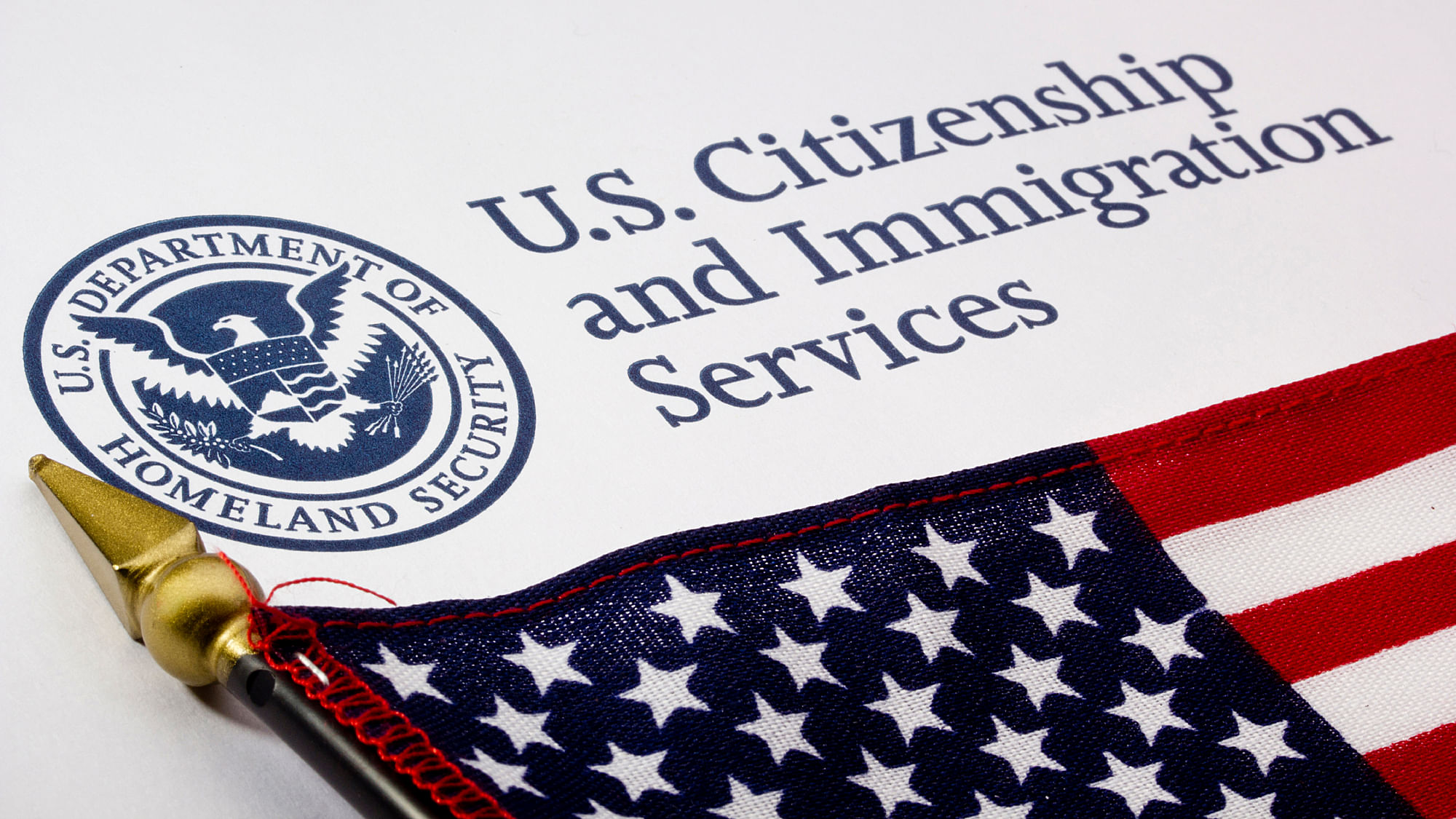Bad News for Indian IT Companies! Trump Cracks Down On H-1B Visa
The move affects the procedure of issuing H-1B visas to those to be employed at one or more third-party worksites.

The Trump administration has announced a new policy that tightens the procedure of issuing H-1B visas to those to be employed at one or more third-party worksites, a move that will significantly impact Indian information technology companies and their employees.
Under the new policy, the company would have to go an extra length to prove that its H-1B employee at a third-party worksite has specific and non-qualifying speculative assignments in a speciality occupation.
The H-1B programme offers temporary US visas that allow companies to hire highly-skilled foreign professionals, working in areas with shortages of qualified American workers.
Indian IT companies, which are among the major beneficiaries of H-1B visas, have a significant number of their employees deployed at third-party worksites. A number of American banking, travel and commercial services depend on on-site IT workers from India to get their job done.
The new move announced on Thursday, 22 February, through a seven-page policy empowers the US Citizenship and Immigration Services (USCIS) to issue H-1B visas to an employee only for the period for which he/she has work at a third-party worksite.
As such, the issue of H-1B visas could be for a tenure of less than three years.
Effective immediately, the new guidance comes weeks ahead of the beginning of the H-1B visas filing season, which is expected to be 2 April, for the American fiscal year 2018-19, which begins on 1 October, 2018.
The guidance says in order for an H-1B petition involving a third-party worksite to be approved, the petitioner must show by a preponderance of evidence that the beneficiary will be employed in a speciality occupation and the employer will maintain an employer-employee relationship with the beneficiary for the duration of the requested validity period.
While an H-1B petition may be approved for up to three years, the USCIS will, in its discretion, generally limit the approval period to the length of time demonstrated that the beneficiary will be placed in non-speculative work and during which the petitioner will maintain the requisite employer-employee relationship, an official statement said.
Extensions of H-1B visas have become even tougher, in particular if the employee has been benched for any previous duration.
Sometimes American companies abruptly end the contract of an employee as a result the workers temporarily do not have any work, which in IT parlance is called on bench.
During this period, while they maintain their H-1B visas status, official investigations have revealed that foreign IT workers on H-1B visas do not get paid, which the USCIS says is illegal and abuse of the system.
If these conditions are not met, and if the petitioner did not comply with the terms and conditions of the original petition and did not file an amended petition on time, USCIS may have eligibility concerns about a subsequent petition filed to extend the beneficiary's employment, the policy memorandum said.
The latest policy memorandum is part of President Donald Trump's 'Buy American and Hire American Executive Order' and the directive to protect the interests of US workers, it said.
Employment-based petitioners who circumvent the worker protections outlined in the national immigration laws not only injure US workers (eg, their wages and job opportunities), but also the foreign workers for whom they are petitioning, it said.
Companies seeking H-1B visas for their employees working at a third-party site, would now have an intensive paper work to file before submitting their applications.
This includes evidence of actual work assignments, which may include technical documentation, milestone tables, marketing analysis, cost-benefit analysis, brochures, and funding documents.
The letter should provide information, such as a detailed description of the specialised duties the beneficiary will perform, the qualifications required to perform those duties, the duration of the job, salary or wages paid, hours worked, benefits, a detailed description of who will supervise the beneficiary and the beneficiary’s duties, and any other related evidence, the USCIS said.
(The Quint, in association with BitGiving, has launched a crowdfunding campaign for an 8-month-old who was raped in Delhi on 28 January 2018. The baby girl, who we will refer to as 'Chhutki', was allegedly raped by her 28-year-old cousin when her parents were away. She has been discharged from AIIMS hospital after undergoing three surgeries, but needs more medical treatment in order to heal completely. Her parents hail from a low-income group and have stopped going to work so that they can take care of the baby. You can help cover Chhutki's medical expenses and secure her future. Every little bit counts. Click here to donate.)
(At The Quint, we are answerable only to our audience. Play an active role in shaping our journalism by becoming a member. Because the truth is worth it.)